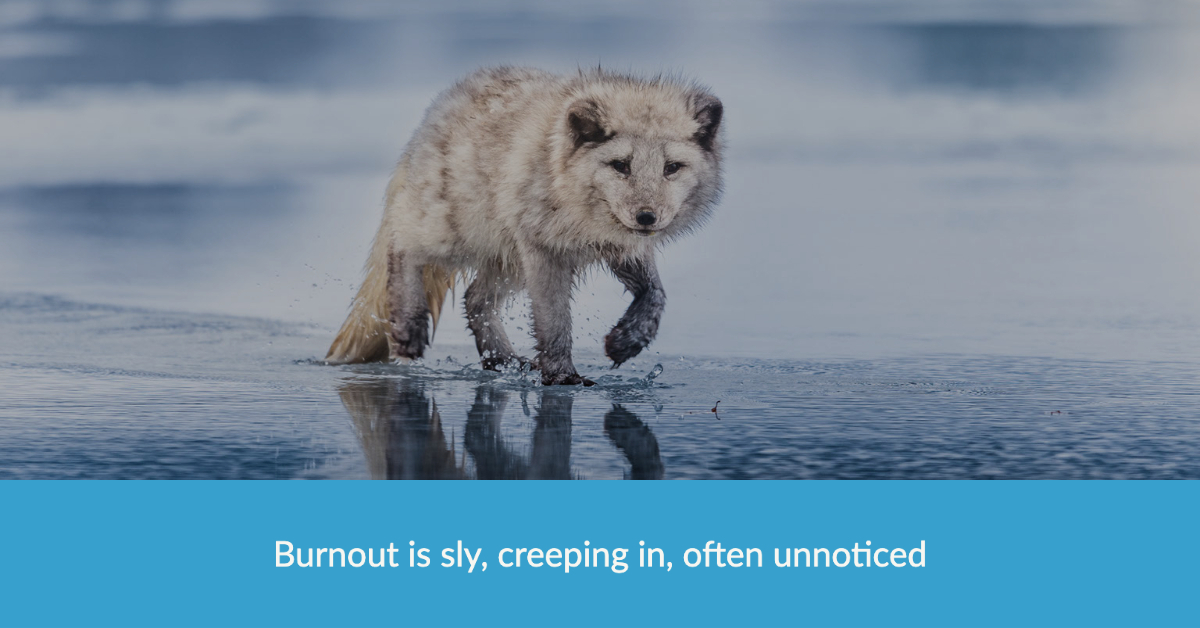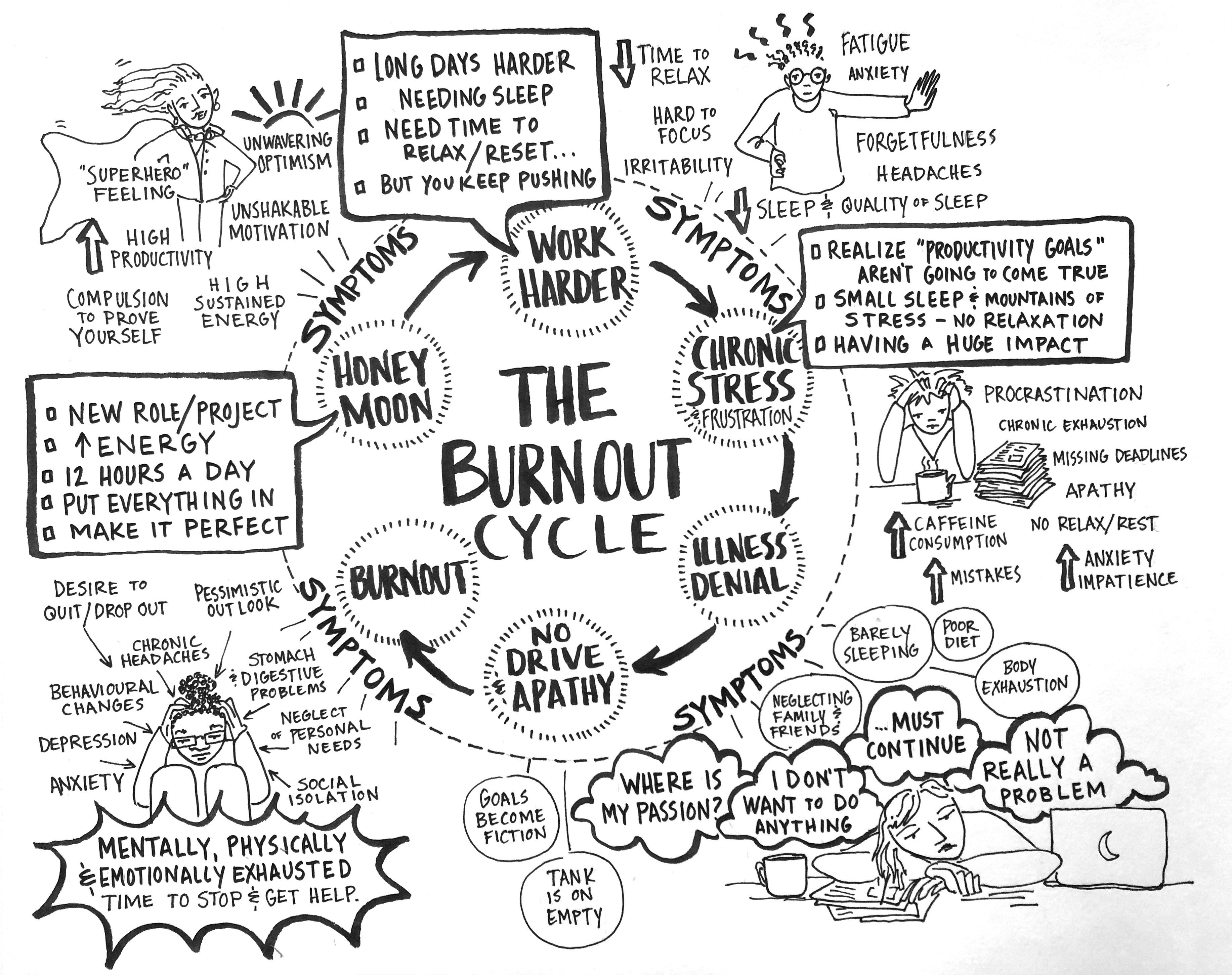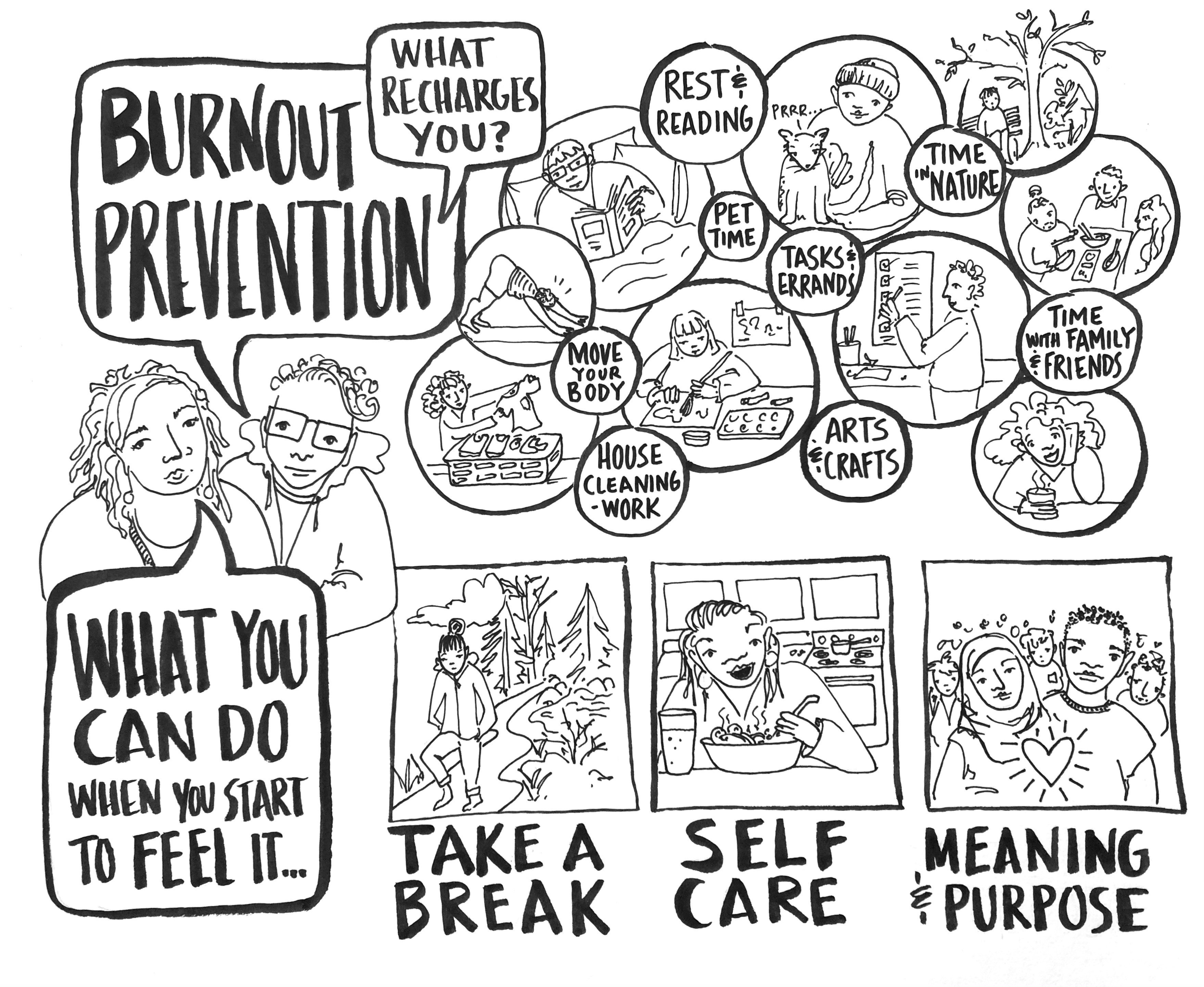
Burnout is a sly beast - it creeps in, often unseen and unnoticed, and can take hold without us realising. Before you know it, the job you once loved leaves you feeling cynical, jaded and like you have nothing more to give. You might even be considering leaving conservation altogether....
But what is burnout? The HelpGuide defines burnout as:
"... A state of emotional, physical, and mental exhaustion caused by excessive and prolonged stress. It occurs when you feel overwhelmed, emotionally drained, and unable to meet constant demands. As the stress continues, you begin to lose the interest and motivation that led you to take on a certain role in the first place."
Familiarise yourself with the stages of burnout and the signs to watch out for, in yourself and others:

Do you recognise these but not sure how serious it is? The Mayo Clinic provides a useful list of questions to ask yourself if you're worried you're burnt out:
- Have you become cynical or critical at work?
- Do you drag yourself to work and have trouble getting started?
- Have you become irritable or impatient with co-workers, customers or clients?
- Do you lack the energy to be consistently productive?
- Do you find it hard to concentrate?
- Do you lack satisfaction from your achievements?
- Do you feel disillusioned about your job?
- Are you using food, drugs or alcohol to feel better or to simply not feel?
- Have your sleep habits changed?
- Are you troubled by unexplained headaches, stomach or bowel problems, or other physical complaints?
If you answered yes to any of these questions then there's a chance you are burnout. Consider seeking help from a Dr, therapist or coach (depending on the severity).*
How to avoid Burnout
There are several known risk factors that can make individuals more susceptible to burnout:
-
-
- Low autonomy or control in your work.
- Lack of recognition or reward for good work.
- Lack of clarity in job expectations, or a chaotic work environment.
- High volume of work, overly demanding expectations, or high-pressure environment.
- Working too much, without time for relaxing.
- Lack of supportive relationships.
- Perfectionistic tendencies.
-
If you recognise any of these in your role, or more widely in the organisation it's worth flagging it with your line manager or someone in HR to discuss what could be improved to help you, or others.
The good news is, if you recognise you're entering the burnout cycle you can take personal actions to support your wellbeing, promote resilience and avoid burnout:

The more activities and support you can have outside of work the lower the risk of burnout. This can be tough when you are working in a field you feel so passionately about, but long-term your passion alone will not be enough to protect you from burnout, so ensure you invest in yourself.
- Look after yourself with all the usual advice BUT make sure these are non-negotiable (i.e don't be skipping lunch for meetings):
- Eat healthily and away from you desk
- Get plenty of sleep
- Exercise regularly - as little as 15 mins a day outside can significantly improve your mood
- Do something you enjoy everyday
- Take time to 'do nothing' and rest, whatever this may look like for you - a favourite film, sitting in nature, reading a book
- Make time for your hobbies - if you don't have any then make time and start one
*If you recognise patterns of behaviour that are risk factors for burnout, coaching can help you to tackle them and start to change these behaviours. If you think you might already be experiencing burnout or your mood is affecting your ability to do everyday tasks, especially those things you normally enjoy, then be sure to speak to your Dr or a mental health practitioner.
Find out more about how coaching can help you through burnout at Conservation Coaching



Please sign in or register for FREE
If you are a registered user on WildHub, please sign in
Thank you so much for sharing this valuable resource, Tori! I really love your work around this important topic! Did you make the drawings yourself? So inspiring!
Ah thank you! No sadly not my own drawings. They are great though aren't they - I found them online and uncredited so if anyone knows who they belong to let me know and I'll happily add the credit. I'm also doing a free webinar in a couple of weeks covering some of this stuff - shall I add the details in the community somewhere?
yes, please - that would be great! Perhaps you can post the webinar in the channels Network opportunities and Wellbeing and resilience? Many thanks, Tori!
Thanks for sharing, Tori!
Thank you so much for this super important post Tori. I think many people are in the depths of burnout without even realising it and is, therefore, something that should be talked about more especially in a work environment.
Burnout could be a good topic for a social at some point.